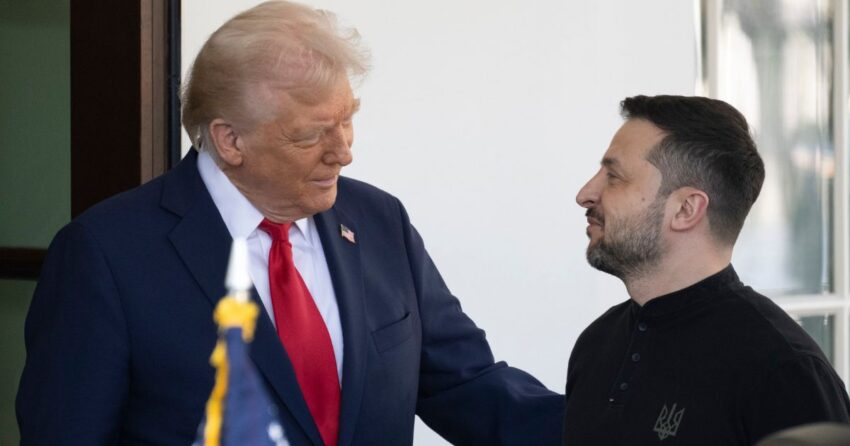The Trump administration dramatically shifts its policy on Ukraine after freezing and then swiftly resuming weapons shipments in response to new Russian aggression.
Last Wednesday, the White House confirms it is halting a mix of air-defense systems and precision-guided munitions—including Patriot interceptors, Stinger missiles, and 155 mm artillery rounds—citing concerns over dwindling U.S. stockpiles. A senior official tells Politico the pause is part of a broader Pentagon review aimed at “putting America’s interests first” following a review of global military aid and inventory levels — a move that sparks criticism from Republicans in Congress and European allies alike.
The freeze draws heavy backlash. Policymakers around Capitol Hill warn the halt could embolden Russia amid its intensifying offensive, with Rep. Brian Fitzpatrick calling it “a breach of Trump’s renewed commitment to Ukraine at the NATO summit.” He demands an emergency briefing from the White House and Pentagon. Meanwhile, NATO Secretary‑General Mark Rutte urges the U.S. to reverse course, stressing that Ukraine “cannot sustain its defense without U.S. support,” according to the New York Post.
Less than a week later, the administration pivots again. During a White House dinner with Israeli Prime Minister Benjamin Netanyahu, President Trump states he is “not happy with President Putin” after recent Russian attacks reportedly killed 11 civilians and injured approximately 80 — alluding to multiple child casualties. He confirms plans to “send some more weapons — defensive weapons primarily — to ensure Ukraine can defend itself.” The Pentagon echoes his remarks, with spokesman Sean Parnell affirming the resumption of deliveries and emphasizing that all military shipments align with an ‘America First’ defense framework.
Trump’s renewed support comes amid a backdrop of sharp criticism aimed at Russian President Vladimir Putin. In a Cabinet meeting, Trump accuses Putin of “killing a lot of people” and claims he has considered stronger pressure, including additional sanctions. This marks a notable shift from earlier statements praised by Russian outlets; Trump now signals a more confrontational tone aligned with his decision to backtrack on the weapons freeze.
Kremlin spokesman Dmitry Peskov responds cautiously, telling Reuters that the situation is “unclear,” noting mixed signals coming from Washington. He confirms that while European allies continue weapons shipments, the status of U.S. aid remains ambiguous.
Analysts describe the episode as emblematic of “messy messaging” in Washington’s Ukraine policy. The stop-start approach exposes tensions between the Pentagon, which initiated the pause to protect U.S. stockpiles, and the president, who responded to humanitarian concerns and battlefield developments.
Critics on Capitol Hill remain skeptical of Trump’s commitment, noting this is the second time shipments have been paused since he took office. The Washington Post warns that repeated freezes threaten U.S. credibility with allies and embolden Russian military planners.
With production constraints already delaying replacement of critical air-defense systems, lawmakers warn that future freezes could have lasting consequences. A recent report by The Guardian highlights that U.S. Patriot missile interceptors are currently at just 25% of the levels needed for global commitments — including Ukraine, Taiwan, and Middle East allies.
Click this link for the original source of this article.
Author: belle
This content is courtesy of, and owned and copyrighted by, http://theinformedamerican.net and its author. This content is made available by use of the public RSS feed offered by the host site and is used for educational purposes only. If you are the author or represent the host site and would like this content removed now and in the future, please contact USSANews.com using the email address in the Contact page found in the website menu.








